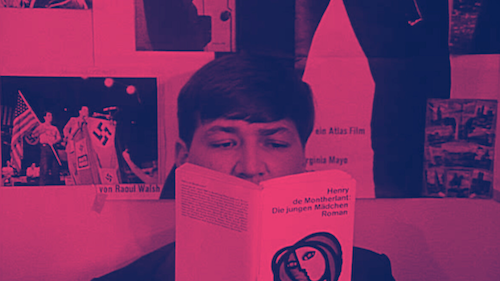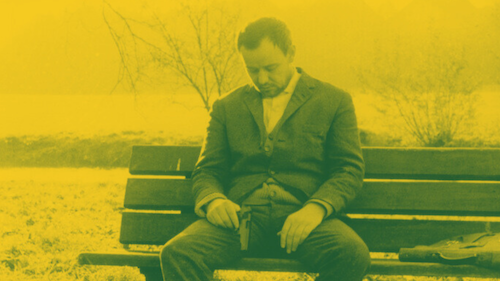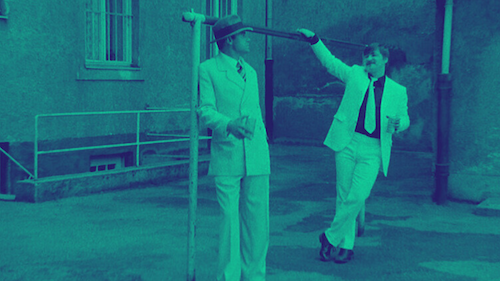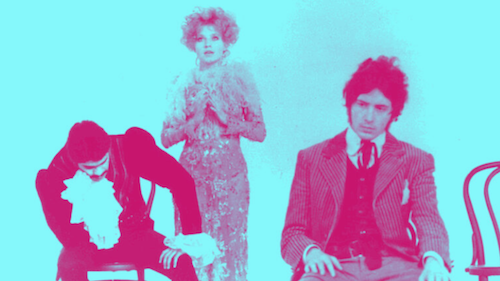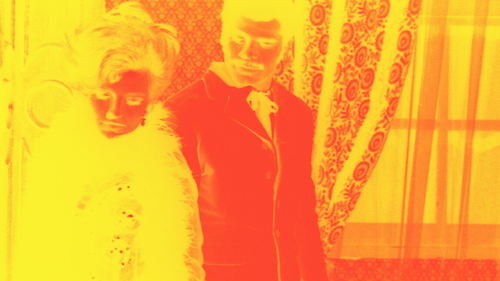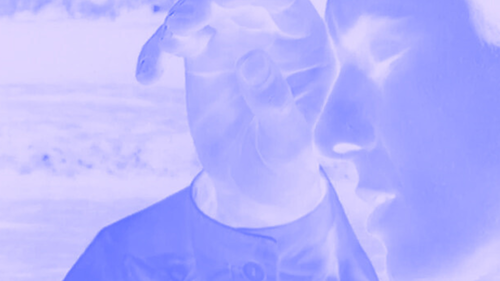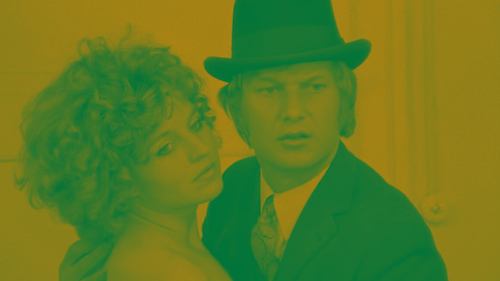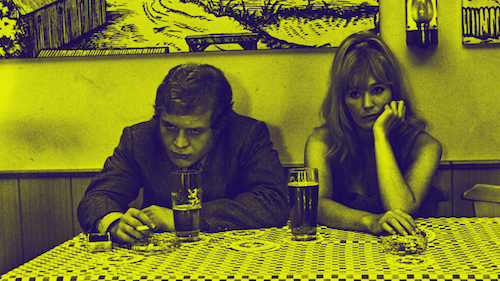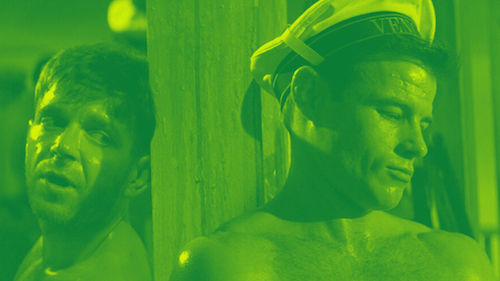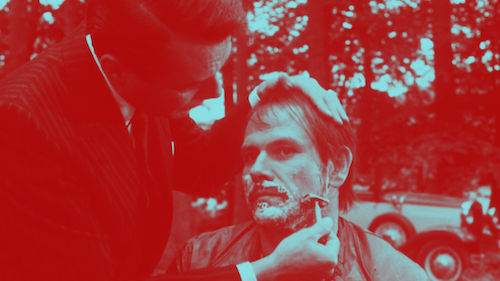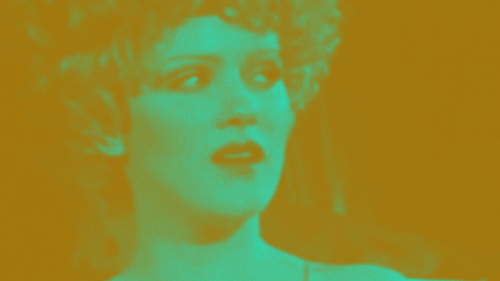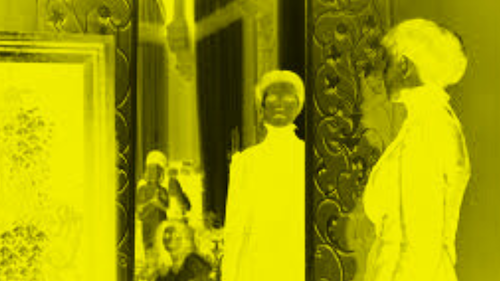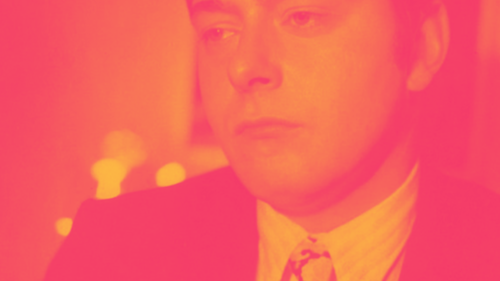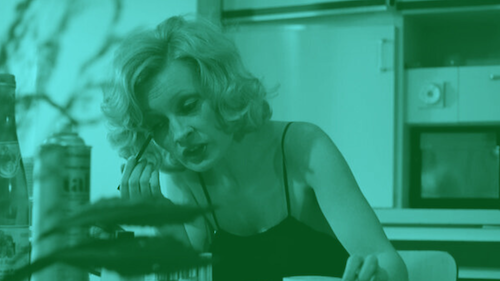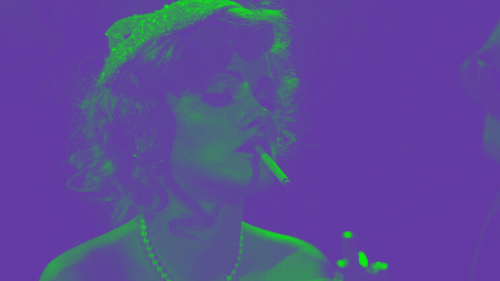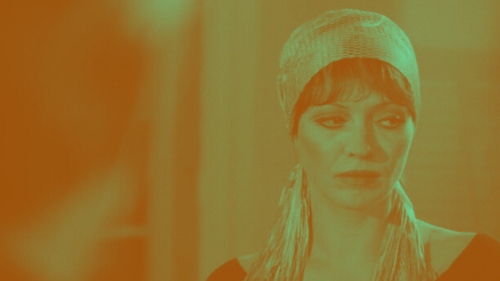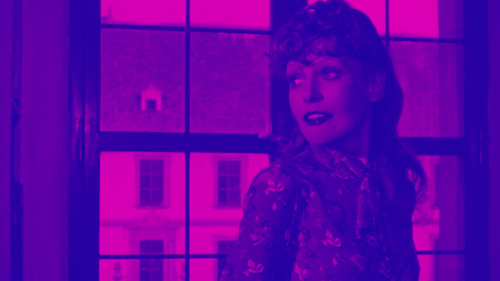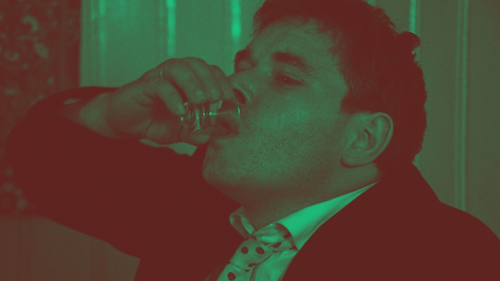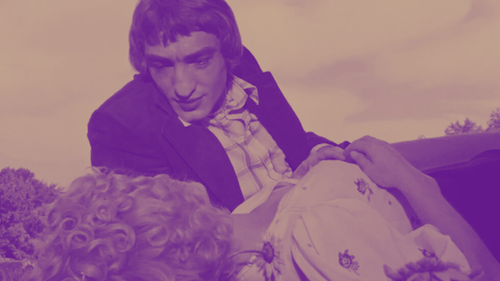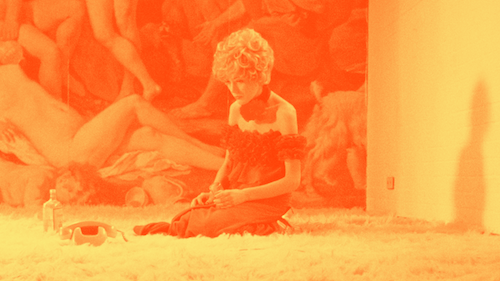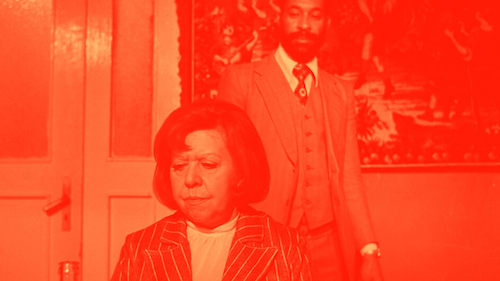Filmography Worship: Ranking Every Rainer Werner Fassbinder Film
Written by Andreas Babiolakis
Filmography Worship is a series where we review every single feature of filmmakers that have made our Wall of Directors
Not many auteurs are as enigmatic and complex as the New German Cinema legend Rainer Werner Fassbinder. A highly prolific career in such a short span of time, Fassbinder released over forty films — from nine minute shorts, to fifteen hour miniseries — in just under fifteen years (not to mention all of the plays he was working on at the same time). Many of his works feel as turbulent as his workflow, with his characters feeling like they are walking on eggshells, and the tension in the room being so thick that you can cut it with a knife. It isn’t unusual for characters to erupt with shrieks of anguish or panic, all while other players stare off into the distance and contemplate how they got to where they are. In short, Fassbinder’s films quite frequently embodied dread and misfortune, all while being some of the most stylish, colourful, radiant films you may ever see (there’s Technicolor, and then there’s Fassbinder’s brand of muted-yet-deep hues). His fixation on post-war Germany meant that his stories detailed the concept of reconstruction, all while Fassbinder tossed in the set pieces and costumes he saw fit. He also infused his melodramatic productions — often indebted to the works of Douglas Sirk — and working class struggles (in line with what Italian neorealists were making) with avant-garde choices (think French New Wave) to keep us on our toes and never feel truly comfortable within the madness.
His cinematic origins have a winding path. When Fassbinder wasn’t being left to his own devices while his mother battled tuberculosis (and becoming a juvenile delinquent to the point of needing boarding school), he was escaping to the local theatre to watch films, reportedly at least one a day. Eventually, Fassbinder was sent to live with his father and attend night school; his dad would rent out apartments, and Fassbinder would take note of who came to inhabit these spaces and their life stories. From taking an interest in drama and writing, Fassbinder would eventually craft a few 8mm short films as admissions to get into the Berlin Film School; he’d ultimately be turned down, and would defer to the Munich Action-Theater instead. His time with this theatre crowd would lead to the starts of his feature films, between the casts and crews he’d bring to the big screen and the control and budget he now had to get his ideas off the ground. His films often worked with the confined sets, heavy dialogue, and small casts that he learned about on stage (or via the lives of those in his father’s apartments): Fassbinder amplified the private moments of others. His ambition would grow quite quickly with his stories expanding and his vision soaring; he even dabbled in genre films occasionally. Once he was making films for television (as was a growing practice in Europe at the time), Fassbinder was pushing what films could be; he didn’t need film school to learn that, it seems.
Unfortunately, it feels impossible to not bring up Fassbinder’s personal life when discussing his career, considering how similarly explosive he was as a human. His controversial interviews were only the tip of the iceberg, as he was also known for his alcohol and drug addictions and numerous instances of domestic violence. As these were topics he included in his works, it can feel difficult to separate the darkest elements of Fassbinder from his art. Simultaneously, he included much of his not-so-private life in his films when it comes to his romantic partners, who he often cast in parts big and small, his bisexuality (queerness is a major theme of numerous films), interracial relationships and racism in general (he dated El Hedi ben Salem, who is Moroccan, and Günther Kaufmann, who was African-Bavarian), and both celebrations and criticisms of the bourgeoisie (an upbringing he experienced with his parents).
Many of Fassbinder’s films were considered lost until recently, and now all but one (the 1966 short film This Night) are watchable in this day and age. To be honest, a large portion of his films are still hard to watch, but that doesn’t mean they are impossible. Hopefully his works will continue to be seen and be made mroe accessible, because not a single one of these works — nearly forty five total — were outright bad or unwatchable. At his worst, Fassbinder was decent with some neat ideas. He also made enough masterful films that I’d feel comfortable calling him one of the great directors of all time. We have many films to get through, so let’s dip into the filmography of a New German Cinema juggernaut. Here are the films of Rainer Werner Fassbinder ranked from worst to best.
43. The Little Chaos
Not much to say about this title outside of it being an early 8m short film by Fassbinder (and one of the many works that would also star the filmmaker). An early exercise in examining the depravity of desperate people, but only so much can be said in nine minutes. I wouldn’t call this a bad film despite being the lowest on this list, but it’s for sure not impressionable given its nature.
42. The City Tramp
The last of the early 8mm short films that we even have access to, The City Tramp — which is also incredibly short at ten minutes in length — is a little more interesting because it is posed as a fable on morality and circumstance: an early look at the underappreciated poetic nature of Fassbinder’s films. Also forgettable for the most part, but Fassbinder enthusiasts wouldn’t be wasting any time by checking out these preliminary projects where a cinematic master was figuring out his craft.
41. Gods of the Plague
Perhaps the weakest feature length film in Fassbinder’s career, Gods of the Plague has interesting ideas that he would perfect later on (a criminal with a second lease on life after being placed back into society, so Berlin Alexanderplatz), but the film itself feels a little too unvarnished and vague. It almost feels like one of the early works of Ingmar Bergman, as both directors were trying to pinpoint the best ways to represent the complexities of humanity, ethics, and distress on film; both directors would clearly find their way eventually.
40. Theater in Trance
An interesting yet partially realized documentary experiment where Fassbinder narrates passages from Antonin Artaud’s The Theater and its double over footage he captured of the Theater of the World festival in 1981. There’s a celebration and criticism of the festival and art itself, and it feels like Fassbinder is trying to go full-on Jean-Luc Godard here, but you can’t just slap a visual and some sound together and make a successfully avant-garde dichotomy. It’s missing something.
39. The American Soldier
Fassbinder was clearly cognizant of the rise of the Neo-Noir movement that was due any day now by 1970 when he made The American Soldier. Very French New Wave in nature while being a little too empty of purpose and heft, The American Soldier is a decent look at crime and style from a filmmaker who would soon learn how to best infuse the two concepts.
38. The Niklashausen Journey
The Niklashausen Journey, Fassbinder’s first forray into television films, may be his most outwardly political and religious experience. Artistically rich yet a bit barren narratively, this was yet another example of a passionate filmmaker who was throwing everything at the wall and seeing what will stick. A polarizing release even within Fassbinder’s fanbase, the experimental techniques and decision making won’t sit well with all.
37. The Coffee Shop
The audacity of this project. A nearly two-hour film that takes place on one set (an empty, theatre-like depiction of the titular coffee shop with tables, chairs, and not much else) being broadcast to the nation on television. I love it. It may feel a bit like a chore to watch at times, but the avant-garde vision of The Coffee Shop occasionally works and is quite a treat when it does.
36. Whity
When Fassbinder would entertain genre films, he would do so once and never again. His answer to the then-popular Spaghetti Western was the race relations film Whity (many years before Quentin Tarantino’s Django Unchained); unlike the latter film, Whity also involved themes of homosexuality (albeit minimally). Equal parts ahead of its time with its genre and contextual bending while restrained at the hands of its own devices, Whity is a risky attempt by a director who was already wanting to pave new roads.
35. Rio das Mortes
Even Fassbinder’s comedic side has a bit of a bite to it, and his second television film, Rio das Mortes, proves it. A brisk feature about the inevitability of dead end lives, Rio das Mortes aims to be both funny and profound, and yet it feels like it doesn’t quite go the distance with either (as evident by the memorable final shot which, similarly, pulls its punch before your very eyes). Another film influenced by the French New Wave.
34. Like a Bird on a Wire
No, not World on a Wire. This forty-five minute television special exists and is quite the bonkers concept. Fassbinder veteran Brigette Mira is given the stage as she reminisces on the lives she had with previous relationships, all while the world around her dissolves into a tapestry of memory, television, and the stage (with music to boot). Named after a Leonard Cohen song (we’ll get into Fassbinder’s affinity for the Canadian singer more later), this singular take on the variety show special is certainly unique enough to warrant a watch (especially if you are a Mira fan).
33. Norma Helmer
An adaptation of Henrik Ibsen’s A Doll’s House, this stripped down version made for the small screen feels like a projection from another dimension. If you can withstand some of the stranger choices (that shrill crying baby will forever haunt my nightmares, until it sadly doesn’t no more), this is a faithful yet different take on an idea that has been done to death before. I’d argue that enough here works that Ibsen’s vision will haunt you via Fassbinder’s uncompromised vessel.
32. Germany in Autumn
To be clear, I am only critiquing Fassbinder’s part of this anthology production (where he is joined by a dozen other filmmakers), and Fassbinder’s entry — a short involving the director and loved ones in his life (including his mom, ex-wife Ingrid Caven, and then-current boyfriend Armin Meier) — is by far and away the most interesting part of the whole feature. As Fassbinder holds difficult conversations with those he cares about relating to the then-fresh trauma brought on by the terrorizing events of German Autumn, this is as upfront and vulnerable as Fassbinder ever gets.
31. Pioneers in Ingolstadt
An adaptation of Marieluise Fleißer’s 1926 play, Pioneers in Ingolstadt is a bare basics television film that makes you feel like you are not just present in the theatre of a production: you are on its very stage. I think this is a stronger example of this kind of experiment in Fassbinder’s career, and it’s unfortunately extremely hard to find access to; for the biggest Fassbinder fans, I recommend seeking it out if you want to see his love for film, television, and theatre converge in this fairly good end result.
30. Satan’s Brew
A satirical look at the stresses of being an artist for a living (in this case, we follow a poet bereft of new ideas), Satan’s Brew appears to be a commentary on how the world honours (or doesn’t, rather) those who bring art and craft to the masses. I feel like Fassbinder has dealt with the concepts of art reflecting itself and tortured souls much more strongly than this film, but Satan’s Brew is a worthy serving for those craving more Fassbinder films with his iconic style and senses of humour and panic.
29. Bremen Freedom
An adaptation of Fassbinder’s own play (not the only time he has done this; see Katzelmacher), Bremen Freedom is an artistic mind trip full of close-ups, rear projection, and the examination of head spaces. Yet another example of Fassbinder replicating the stage in a television film through as few means as possible, Bremen Freedom is a stronger case of experimental theatre work by Fassbinder, and one whose uncanny aesthetics only seem to age better with time (maybe in a nostalgic way).
28. Love is Colder Than Death
Fassbinder’s feature length debut, Love Is Colder Than Death is a bit straightforward by his standards; as the director would learn how to balance misery with style later on, this first feature is drenched in nihilism, which holds it back a teensy bit. Driven by the passion of a relentless auteur and the anger of a citizen during the Cold War, Love Is Colder Than Death is a strong-enough crime film for Fassbinder obsessives to seek out; it’s far from the best place to start, but there’s something commendable here.
27. The Stationmaster’s Wife
The penultimate television film Fassbinder made, The Stationmaster’s Wife — be it the three-and-a-half hour version or the brisker two-hour cut — is classic Fassbinder, featuring the jealous stationmaster in the title and his promiscuous spouse. Full of fashionable aesthetics, tension, and pure anguish, The Stationmaster’s Wife may not be on par with some of the director’s better depictions of failing marriages or sexual exploration, but it is still at least cut from the same cloth (which may be the only remark you needed to hear before watching it).
26. Katzelmacher
Fassbinder’s second feature film saw the filmmaker bringing a theatre project of his to the big screen to good-enough effect. A statement on immigration and societal sectarianism, Katzelmacher is yet another example of a concept Fassbinder would tackle better later (in this case, I’d argue Ali: Fear Eats the Soul) but is still a noble effort early in his career. Besides, it pays to see his thought process on how to best transfer his skills as a dramatist to the big screen (and bring his casts and crew members along with him).
25. Querelle
Fassbinder’s swansong is getting a bit of a resurgence in popularity, but that won’t exactly scrub away the unfortunate messiness of this ambitious project. Nonetheless, much of Querelle has indeed aged well, from the singular colour grading and grimy aesthetics to the campy homo-eroticism that appears to play ball. Otherwise, the English dialogue here is a teensy bit clunky, the songs aren’t the best, and there feels like a missed opportunity in this final feature film. It holds a place in my heart because of what works and the effort put into this film by Fassbinder, who didn’t live to see the posthumous theatrical release of his final statement.
24. Despair
A rare Fassbinder film to be released in English, Despair is a Kafka-esque thriller (despite being an adaptation of a Vladimir Nabokov novel, mind you) that has great intentions with mostly good results. I can imagine an international filmmaker testing the waters with something less out-there than Despair, but that makes this release all the more noteworthy. It’s clear that Fassbinder felt confident and explorative no matter what, and this forray into the English markets shows that. If you’re looking for a quirky, meta take on doppelgängers that leaves you questioning what you are watching, search no further.
23. Women in New York
Don’t be surprised, but it’s yet another minimalist television film, and one that is actually quite something. Based on George Cukor’s The Women, Women in New York weaves together the stories of multiple, aristocratic females in Depression-era New York as their personal lives and the world around them make for interesting parallels. Very much in line with the kind of multi-story takes directors like Woody Allen may conjure up (especially given that New York connection); oddly enough, this film is a rare, straight-up comedy for Fassbinder.
22. Jail Bait
A highly taboo film by Fassbinder’s standards (which is saying a lot), Jail Bait is pretty much what it sounds like: a film about a teenage girl’s relationship with a young — but adult — man which spirals downward into hysteria. Quite ahead of its time with its provocative, dangerous nature, Jail Bait is not going to be for everyone (obviously) but those daring enough to watch such a film will find that Fassbinder is trying to tell a more interesting and multifaceted story than one just for shocks.
21. Fear of Fear
From this point on, the films take quite a leap in quality, and the harrowing, existential prison known as Fear of Fear is one of the few Fassbinder films I’d consider under-seen. This depiction of a tormented housewife is an arresting watch spearheaded by a terrific performance by Fassbinder regular Margit Cartsensen. From the disheartening world building to the shocking final act, Fear of Fear is a must-see by anyone interested in New German Cinema (who feels like they have already seen it all).
20. Lili Marleen
Fassbinder’s answer to the World War II drama is Lili Marleen: named after the Lale Andersen song of the same name (and which is heavily prominent in the film). Here is a similar chanteuse (here, it’s Willie, played by German icon Hanna Schygulla) is torn between Jewish-Swiss conductor lover (who is trying to save his own people from the Holocaust) and her own rise in fame within her motherland of Germany. Possessing Fassbinder’s token anxiety and lovelessness, Lili Marleen is quite an impactful watch.
19. The Third Generation
Some of Fassbinder’s films proved to be as controversial as he was as a person, and The Third Generation is such an example. Despised by many upon its release (yet adored by few), this satirical, political thriller about terrorism was painfully jarring and chaotic for its time. In hindsight, it fits right in with the many edgy films that would be released afterwards and is considered a stronger Fassbinder release. I tend to agree with the latter, seeing as I could not shake off how uniquely unhinged this film is (yet I feel like The Third Generation will forever remain polarizing with enough viewers that will outright hate it to this day).
18. Effi Briest
Not only is Effi Briest an uncharacteristically grounded film for Fassbinder (a historical drama that is in black-and-white no less, seeing as the use of colour in his films is legendary), it is also stunning via the very dictionary definition of the word. An underrated period piece that is painfully beautiful, moving, and ghostly in a way that is reminiscent of the works of Carl Theodor Dreyer, Effi Briest is a sign of what could have been for a director who died too young: was there more like this in his wheelhouse? If so, we’ll never know.
17. Why Does Herr R. Run Amok?
An early success in Fassbinder’s career, Why Does Herr R. Run Amok?’s strength may be attributed to the fact that this is a film that he co-directed with Michael Fengler, who — depending on who you ask — had varying degrees of input in this project (maybe even more than Fassbinder himself). Either way, this is a film Fassbinder had a hand in making and it’s a damn good one at that: a nerve-wracking drama that is nonetheless indicative of the kinds of works Fassbinder would be making down the road (whether Fengler had some say or nearly-complete control over this project, I’m thankful for its existence and its pivotal nature in Fassbinder’s career).
16. Beware of a Holy Whore
Many of the best directors have tackled the great film about filmmaking. Here’s Fassbinder’s, and it’s one of his favourites of his own work. Beware of a Holy Whore is a frantic encapsulation of an unruly production and its various members, completed by the songs of Leonard Cohen (to dissonant effect) and a story about Goofy of Disney fame, no less. I don’t agree with Fassbinder that this is his best work, but Beware of a Holy Whore is undeniably effective: a transportation to the miasma of working in show business and the hideousness that comes with the passion.
15. I Only Want You to Love Me
The joys of preservation include the ability to rescue a once lost film like the television release I Only Want You to Love Me: a painfully candid look at a man who will never know what will truly bring him happiness or solace. As the film bends to his needs to the point of disaster, it’s clear that there sometimes aren’t any direct answers as to how to cure a woeful, mundane, agonizing life. Predating the kitchen sink dramas of Britain, I Only Want You to Love Me is a tale of working class hardship that has to be cherished now that it is accessible again.
14. Mother KÜsters’ Trip to Heaven
A melodrama that is willing to go the distance with its delirium, Mother Küsters’ Trip to Heaven is as film as colourful as it is hectic. While early Fassbinder films felt like he was trying everything to see what stuck, this release sees him attempting a myriad of ideas knowing that they would all work in tandem; the film never lets up with its misfortunes and developments. Taking the spirit of a Douglas Sirk film and dialing things up to eleven, Mother Küsters’ Trip to Heaven is visceral art and commentary.
13. In a Year of 13 Moons
Yet another film that was years ahead of its time, In a Year with 13 Moons stars a transgender character aiming to piece her life back together again. A triumphant-yet-heavy drama, this project sees Fassbinder easing up just a little bit on what happens to his characters. If some Fassbinder films were indebted to the melodramas that came before him, then a film like In a Year with 13 Moons acts like a bridge for what’s to come (like, say, a Pedro Almodóvar); it is a Fassbinder release that demands to be as discussed as many of his classics.
12. Lola
The weakest entry in Fassbinder’s BRD Trilogy is still a tremendous, near-psychedelic work that must be seen (a testament to how great the series is). Lola sees a conflicted protagonist of the same name within a thriving Germany post war and tries to find what her place in society — and the world — is. Its rises are as swift as its falls, as we experience the bumpiness of life, reform, and purpose. There were to be more films in the unofficial BRD series, so we’ll never know if Lola would have remained the lowest entry; despite that, it is easily one of Fassbinder’s most brilliant films, only beat out by miraculously stronger works.
11. Chinese Roulette
When Fassbinder wanted to work psychologically, he didn’t hold back. Case in point: Chinese Roulette is a horrifying, mesmerizing psychological drama that lures you in and places you in a situation of torture, predating the works of likeminded artists like Michael Haneke. As the winding premise leads to the nauseating climax of this nightmarish drama, you won’t know what steps will come next at any point nor will you try to figure out these subsequent moves because of how frozen in place you will feel. For anyone that likes cinema that messes with your head and emotions simultaneously, Chinese Roulette is a masterclass in manipulation.
10. Martha
One of the strongest television films Fassbinder made, Martha is a full-throttle, near Hitchcockian thriller that places its titular character in a parade of curses. As the film kicks off with disorderly uncertainty, you will feel unprepared and unstable for what comes next, much like Martha herself. What transpires is event after event, moving and shocking you with every turn. Another release that was temporarily lost but is now restored, Martha is a sensational film that you will never forget (and, thankfully, its preservation allows for time to not erase it completely).
9. Fox and His Friends
While only one of Fassbinder’s best films, Fox and His Friends is my choice for the director’s best work as an actor, as he takes on the lead role of Franz (or “Fox”) who wins the lottery and is in a tailspin as a result. As a director, Fassbinder is typically obdurate with his intensity, but the heart comes from Fassbinder as an actor who leaves everything on the big screen; it’s a fascinating example of an artist playing tug-of-war with himself, and both God and a mere mortal. An examination of the plague that fortune brings the damned, Fox and His Friends is a director — and actor — operating in top form.
8. The Merchant of Four Seasons
The first major breakthrough for Fassbinder — where he really got it as a director and storyteller — was the 1971 film, The Merchant of Four Seasons. He began to understand that you can’t just have madness for the sake of madness: that you had to build towards insanity or breakdowns through organic, empathetic depictions of collapse. Such was the case with the central peddler who gradually loses a grip on his life (as a husband, father, and son) and member of society. His disintegration is one that is identifiable by most viewers, but how he goes over the edge is where Fassbinder aims to separate the character from the viewer, allowing us to distance ourselves from the complete wreckage that is to come. The Merchant of Four Seasons is unforgiving, and a sign that a director fixated on pushing the envelop had eventually arrived.
7. Veronika Voss
The penultimate film in Fassbinder’s life is far more complete than his final release, Querelle. Veronika Voss — the second part of his unofficial BRD Trilogy, albeit released last — is a noir-esque answer to shifting times and growing irrelevance (maybe lingering thoughts Fassbinder grappled with). In the vain of Billy Wilder’s magnum opus Sunset Boulevard, Veronika Voss watches a star dwindle (partially due to her own self destruction, but mainly something far more nefarious and heartbreaking). Another unusually black-and-white film for Fassbinder, Veronika Voss lives and breathes in the shadows of a tucked-away and forgotten life, with each focal point illuminated with heavenly worship (these cinematographic qualities are the highs-and-lows of the entertainment industry, after all). Given how self-reflective Veronia Voss feels (and the unfortunate coincidential way that the film predicts how Fassbinder himself would pass away), this film truly feels like his true final masterpiece.
6. Eight Hours Don’t Make a Day
One of Fassbinder’s miniseries films, Eight Hours Don’t Make a Day was released in parts with each episode dropping once per month; it drives home the drone of working class life, doesn’t it? As we feel like we are intruding and disrupting the everyday life of commoners, Fassbinder uses this opportunity to make art that is far more light-hearted and optimistic than he traditionally is. With its lengthy duration and its episodic format, we have the opportunity to find hope in our own lives however we see fit (a bit at a time, or a hefty dose all at once). To watch Eight Hours Don’t Make a Day is to feel both the endlessness of the working shift and the speed of life simultaneously: a fluent understanding of the push-and-pull nature of the everyday experience for all adults. I’m thrilled that this miniseries — which is very much a lengthy film cut into parts — is finding more viewers in the day and age of streaming. It fully deserves the adoration.
5. The Marriage of Maria Braun
The first and strongest film in Fassbinder’s BRD Trilogy, The Marriage of Maria Braun is a cautionary tale on the abrupt changes in life, especially during wartime. As Maria marries soldier Herman Braun at the tail end of the Second World War, the latter goes missing and the former feels forced to figure out her life from there. The Marriage of Maria Braun invests itself with twists and turns to mimic the unpredictable nature of life (and, I suppose in a sense, marriage), all amalgamating towards an erupting final image: one of precise avant-garde technique and narrative payoff, resulting in an indelible partnering of image and sound for the ages. From that point on, The Marriage of Maria Braun feels like a tale of apparitions when revisited: a cementing of lives torn apart and thrown around by circumstance. It’s as bittersweet as romances get.
4. The Bitter Tears of Petra von Kant
If The Merchant of Four Seasons allowed Fassbinder to find his place as a filmmaker, then The Bitter Tears of Petra von Kant is when he figured out how to be an untouchable, influential auteur. Confined to one spot (but what a glorious room that is, with the now-iconic mural that both makes our eyes and brains wander while closing us in even more), this film forces us to endure this five-act debacle between lovers (with each act being represented by the titular character’s outfit): a Bremen fashion designer and her assistant muse. Essentially, we watch the rise and fall of the relationship as if life can take place over the course of an evening, and yet we feel every ounce of this implied history (and the emotional shrapnel to boot). As expansive as it is tethered, the Bitter Tears of Petra von Kant is a daring film: one that fully understands how to best bring the sensations of theatrical productions to the big screen without losing anything in the process. Most directors could only dream of having a film this naked feel so massive.
3. Berlin Alexanderplatz
While I don’t recommend going this route, Berlin Alexanderplatz was the very first Fassbinder project I ever watched as a late teenager (maybe I’m a sadist to myself). A fifteen-hour (!) film cut up into episodic parts and released as a miniseries, Fassbinder’s adaptation of Alfred Döblin’s novel of the same name is as ambitious and faithful as filmic answers to literature get. For over ten hours, we follow Franz Biberkopf post prison release, as he tries to reenter a rapidly changing Berlin a reformed man. He is tested and bested time and time again; the intense run time allows for many organic dilemmas to take place. As Berlin Alexanderplatz works its way towards a satisfactory conclusion, the epilogue pulls the rug from underneath us, destroying all that we knew before this point via anachronisms and surreal horror. To this day, this final act is very much the most accurate, petrifying depiction of hell that I have ever seen in a film, and the lengthy build up towards it is instrumental to this payoff. From that point on, I was a Fassbinder fan. To this day, there aren’t many films or miniseries like Berlin Alexanderplatz: an unparalleled project that will unquestionably shake you to your core.
2. Ali: Fear Eats the Soul
Sandwiched between two lengthy films on this list is the ninety-minute classic Ali: Fear Eats the Soul: proof that Fassbinder could evoke as much emotional and narrative weight as he desired in any capacity. An interracial relationship between widowed mother Emmi and Moroccan migrant worker Ali sparks life in both partners, previously disillusioned the hardships of life. What transpires is a series of tribulations stemming from society, loved ones, and both partners themselves. So many themes of the experience of life and civilization’s bigotries and hardships are present in this fable-like story of lovers, which helps Ali: Fear Eats the Soul remain Fassbinder’s most humanistic and sympathetic film. it’s a go-to when most discuss their favourite films by the director and it is easy to see why given its universal appeal and power.
1. World on a Wire
For me, however, there are very few cinematic experiences I’ve had like the first time I finally got around to World on a Wire as a younger adult. You can’t blame me for my tardiness, though, given the fact that this science fiction opus was very much lost for decades. It was shown on television in two parts for a couple of air times, and then was nothing. World on a Wire existed for a blimp of a moment, and was perhaps never to be seen again. Its influence was undoubtedly felt, inspiring works like The Matrix and Cronenberg works like eXistenZ and Videodrome, yet the true transfer from source material to homage was vague considering how most who saw the film could only rely on their faint memories of what once was. As a result, no matter how referenced World on a Wire was, nothing replicated its frozen-in-time sensation of a stylish, retro-yet-futuristic West Germany. All that remained was the concept of one’s reality being a fabrication provided to us by host programmers, and this madness that spawned from trying to figure out what is real and what isn’t.
Once we faced a similar question (what will happen once the clocks strike past midnight and we entered a new millennium in the year 2000), a digital copy of World on a Wire finally made its way online near the start of the twenty first century: allegedly a copy found by a Fassbinder obsessive from some remote archive. A restoration of the film was imminent, and by the 2010s, this opus of science fiction cinema — once a Holy Grail — was now available for the masses. What a singular experience this film is. Because of its unusual circumstances, virtually no film I’ve ever seen feels quite like it. We have an icy yet optimistic (at least in its final sequence), three-and-a-half hour epic that plays with what we see on screen and what we understand to be real. While a bit dated with its approach to synthesized realities (many inspired films have furthered the concept since), World on a Wire makes up for this by being a stylized fever dream of a film that encourages you to be a part of the delusions. Fassbinder’s signature stype of paranoia and angst is on full display here, within an exquisitely crafted world that is unlike any in film history.
For me, World on a Wire is Rainer Werner Fassbinder’s greatest achievement, as difficult of a claim as this is to make given the caliber of his finest works. What helps solidify this in my mind is how ingrained the entirety of the film is in my brain, as if I never detached myself from the very few times I’ve seen the film (it’s difficult to squeeze in such long films frequently, you understand). This marriage of style, dread, nostalgia, mystery, thrills, and the digital age still feels fresh, untouched, and unmatched. It’s the only science fiction film Fassbinder ever made, but what an entry for the genre. I absolutely adore this film, and — all things considered — I have to rank it first amongst numerous other masterworks. I cannot fathom if a film of this brilliance, beauty, and boldness was lost in time. We’re blessed that we have access to watch it, and whenever we desire. That wasn’t always the case.
Andreas Babiolakis has a Masters degree in Film and Photography Preservation and Collections Management from Ryerson University, as well as a Bachelors degree in Cinema Studies from York University. His favourite times of year are the Criterion Collection flash sales and the annual Toronto International Film Festival.


